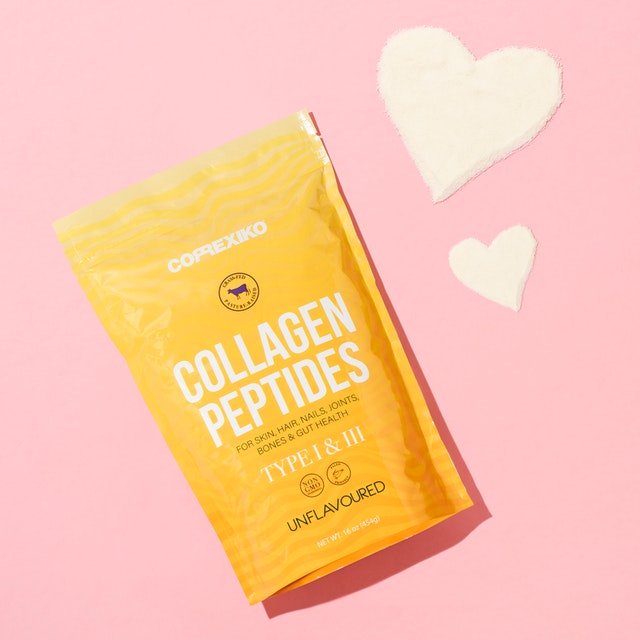Collagen is a protein that your body produces naturally. In our younger days, our bodies produce bountiful amounts of collagen, but as we age, our hormones impact the creation and cause concern about whether your hair and skin get enough collagen. Collagen is vital to the building blocks of your skin, bones, muscles, and tendons. It is often found in anti-aging skin care products and we can sometimes wonder if it is just a fad ingredient that is helpful for marketing purposes.
Collagen levels drop off as you get older, leading to various age-related issues like wrinkling skin, decreased flexibility, joint pain, and thinning hair. These side effects of low collagen production have been clinically proven.
The most reliable way to replenish your body’s collagen supply is through your diet. Taking collagen dietary supplements will only boost your body’s collagen availability, never a bad thing!
Why Do You Need More Collagen?
Collagen is a word derived from the Greek word for “glue.” It’s essentially the structural scaffolding that holds your tissues together and keeps them pliant and stretchy. A sufficient collagen supply is crucial for body functions, including:
- Smooth, elastic skin
- Blood clot formation during the wound healing process
- Blood vessel shape and fortification
- Joint and ligament flexibility
- Strong bones
- Building muscle mass
- A thick digestive tract lining
- A healthy scalp
- Thick, supple hair
External stressors like sun exposure, pollution, and smoking can also disrupt your natural collagen production. Menopause causes production to drop off dramatically.
Getting Enough Collagen Through Your Diet?
Your body needs certain essential elements like amino acids, vitamin C, and minerals to create this protein. When the foods you eat contain collagen or its necessary building blocks, you boost its availability in your system and help your body use it more efficiently.
Food sources that are the most beneficial to offset collagen loss include:
- Bone broth: Bone broth can be made by simmering water with animal bones to extract the collagen.
- Egg whites: The amino acids proline, glycine, and lysine, vital for collagen production, are all present in egg whites.
- Legumes and nuts: Kidney beans, black beans, edamame, and cashews contain the necessary components for collagen formation, including amino acids, zinc, and copper.
- Chicken: Because of the abundance of tendons and ligaments, chicken meat contains high levels of collagen.
- Vegetables and fruits: Berries, citrus fruit, tomatoes, leafy greens, bell peppers, broccoli, and cauliflower are all high in vitamin C, which the body needs to produce collagen.
- Fish skin: Collagen is stored under the skin of fish, so eating fish with the skin on will provide extra collagen to your diet.
Keep in mind that consuming too much sugar and refined carbohydrates can damage the collagen in your skin. Make it a habit to check ingredient lists and eat the whole foods listed above for the fastest potential collagen boost.
Collagen Supplements
Adding collagen supplements to your diet can also help promote skin and joint health. Though with so many different supplements on the market, you may find it confusing to know the best way to take them.
You can find collagen supplements in the following forms:
Collagen Powders
Collagen is sometimes sold in a dry, powdered form. Mix it into your foods or drinks to boost your dietary collagen intake. You should know that collagen molecules fall apart and lose their effectiveness when warmed above your body temperature. Therefore, collagen powder is likely useless when combined with your morning coffee or other hot food or drinks.
Liquid Collagen
Liquid collagen is premixed and ready to drink, making it more convenient to take than powder. The downside? It needs refrigeration, so it’s not as mobile for those who want to take it on the go.
Pills or Capsules
With collagen pills or capsules, your daily dose is pre-measured and can be taken quickly and easily. However, with this form of collagen, the tablet or capsule’s outer shell needs to be broken down by your digestive system before your body can access the protein. This means absorption into your system may take longer.
The post Are Your Hair and Skin Getting Enough Collagen? appeared first on LivingBetter50.







